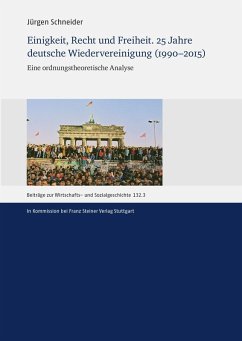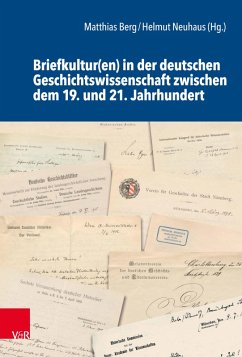
Die zankende Zunft (eBook, PDF)
Historische Kontroversen in Deutschland nach 1945
Versandkostenfrei!
Sofort per Download lieferbar
Statt: 40,00 €**
39,00 €
inkl. MwSt. und vom Verlag festgesetzt.
**Preis der gedruckten Ausgabe (Broschiertes Buch)
Alle Infos zum eBook verschenkenWeitere Ausgaben:

PAYBACK Punkte
0 °P sammeln!
Die zeithistorische Forschung hat in Deutschland immer wieder Anlass zu breiten öffentlichen Debatten gegeben. Fritz Fischers Arbeiten über den Ersten Weltkrieg, Anfang der sechziger Jahre publiziert, öffneten den kritischen Blick auf die deutsche Nationalgeschichte. Der »Historikerstreit« der achtziger Jahre über die Einzigartigkeit des Holocaust brachte die Auseinandersetzung der Fachgelehrten erneut in die breitere Öffentlichkeit. Die Vereinigungsdebatte und schließlich die Kontroverse um Goldhagens Buch »Hitlers willige Vollstrecker« stellen eindrücklich unter Beweis, wie sehr Z...
Die zeithistorische Forschung hat in Deutschland immer wieder Anlass zu breiten öffentlichen Debatten gegeben. Fritz Fischers Arbeiten über den Ersten Weltkrieg, Anfang der sechziger Jahre publiziert, öffneten den kritischen Blick auf die deutsche Nationalgeschichte. Der »Historikerstreit« der achtziger Jahre über die Einzigartigkeit des Holocaust brachte die Auseinandersetzung der Fachgelehrten erneut in die breitere Öffentlichkeit. Die Vereinigungsdebatte und schließlich die Kontroverse um Goldhagens Buch »Hitlers willige Vollstrecker« stellen eindrücklich unter Beweis, wie sehr Zeithistoriker heute zu Initiatoren breit geführter öffentlicher Debatten geworden sind. Die großen zeithistorischen Kontroversen haben die politische Kultur der Bundesrepublik nachhaltig geprägt. Zugleich haben sie die Zeitgeschichte für kritische Fragestellungen und Innovationen geöffnet. Der Band zeichnet die wichtigsten Debatten allgemeinverständlich nach und situiert sie im spannungsreichen Geflecht von Forschungsdiskussion und medialer Vermittlung. Damit liefert er zugleich eine Einführung in die Geschichte des Fachs über den Gang ihrer wichtigsten Kontroversen.
Dieser Download kann aus rechtlichen Gründen nur mit Rechnungsadresse in A, B, BG, CY, CZ, D, DK, EW, E, FIN, F, GR, H, IRL, I, LT, L, LR, M, NL, PL, P, R, S, SLO, SK ausgeliefert werden.













